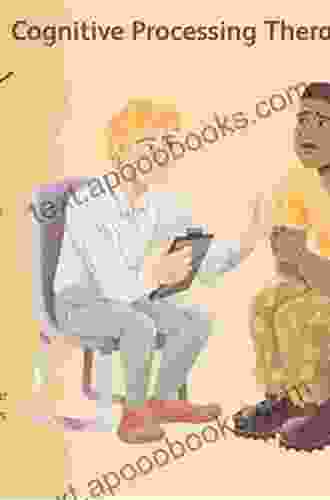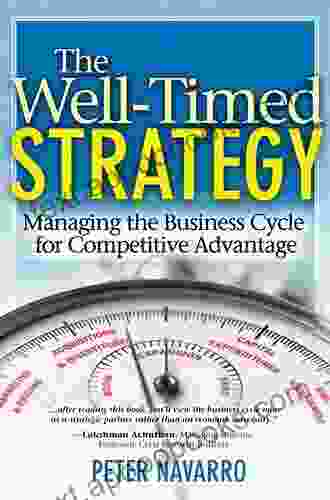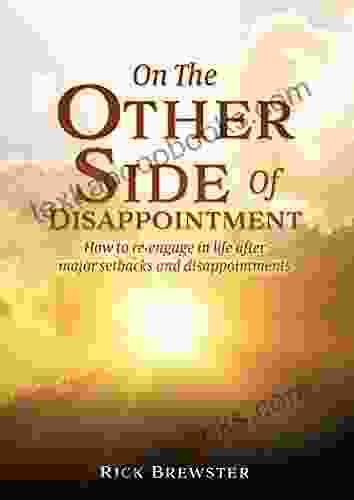Cognitive Experiential Psychotherapy for the Treatment of Trauma: Uncover the Transformative Guide to Healing and Recovery

Trauma, a profound and often debilitating experience, can leave lasting scars on our mental health and well-being. In recent years, Cognitive Experiential Psychotherapy (CEP) has emerged as a groundbreaking approach to addressing the complex challenges posed by trauma, offering individuals a structured and compassionate path towards healing and recovery.
In this comprehensive article, we delve into the transformative principles, techniques, and benefits of Cognitive Experiential Psychotherapy for the treatment of trauma. Explore the key concepts, therapeutic interventions, and proven outcomes that have established CEP as a gold standard in trauma therapy.
5 out of 5
| Language | : | English |
| File size | : | 1524 KB |
| Text-to-Speech | : | Enabled |
| Enhanced typesetting | : | Enabled |
| Word Wise | : | Enabled |
| Print length | : | 206 pages |
| Screen Reader | : | Supported |
Understanding Trauma and Its Impact
Trauma is any experience that overwhelms our ability to cope, leaving us feeling powerless, violated, and unsafe. It can stem from a wide range of events, such as physical or sexual abuse, witnessing violence, experiencing accidents or disasters, or enduring severe neglect.
Trauma can manifest in various ways, affecting our thoughts, emotions, behavior, and relationships. It can lead to symptoms like persistent memories and nightmares, avoidance behaviors, emotional dysregulation, and difficulty forming meaningful connections.
Cognitive Experiential Psychotherapy: A Comprehensive Approach
Cognitive Experiential Psychotherapy (CEP) is a trauma-focused therapy that combines cognitive and experiential techniques to help individuals process and overcome traumatic experiences.
CEP is based on the understanding that trauma disrupts our normal cognitive processes, leading to distorted beliefs, negative self-perceptions, and difficulty regulating emotions. It also recognizes the importance of addressing the physical and emotional sensations that are often associated with trauma.
Key Principles and Techniques
CEP therapy involves a range of principles and techniques aimed at addressing the cognitive, emotional, and behavioral effects of trauma. These include:
- Cognitive Restructuring: Identifying and challenging distorted thoughts and beliefs.
- Emotional Regulation: Developing skills to manage intense emotions and physical reactions.
- Exposure Therapy: Gradually confronting feared situations to promote desensitization and reduce avoidance.
- Safety Planning: Developing strategies to manage overwhelming emotions and prevent self-harm.
li>Experiential Techniques: Using imagery, body awareness, and role-playing to process traumatic memories and emotions.
Benefits of Cognitive Experiential Psychotherapy
Numerous research studies have demonstrated the significant benefits of CEP for the treatment of trauma, including:
- Reduced Trauma Symptoms: CEP effectively reduces the frequency and intensity of trauma-related symptoms, such as flashbacks, nightmares, and avoidance behaviors.
- Improved Emotional Regulation: CEP enhances individuals' ability to manage their emotions, reducing emotional dysregulation and increasing overall emotional stability.
- Cognitive Transformation: CEP helps individuals challenge and revise distorted beliefs about themselves and the world, fostering positive self-perceptions and reducing self-blame.
- Enhanced Relationships: CEP can improve relationships by fostering healthier communication, reducing mistrust, and promoting emotional intimacy.
- Increased Self-Efficacy: CEP empowers individuals to take control of their recovery, enhancing their sense of self-confidence and resilience.
The Path to Healing and Recovery
Cognitive Experiential Psychotherapy provides a structured and compassionate framework for individuals to heal from traumatic experiences. Through a combination of cognitive and experiential techniques, CEP helps individuals gain a deeper understanding of their trauma, process their emotions, and develop coping mechanisms.
The path to healing and recovery is not always easy, but it is possible with the right support and guidance. If you or someone you know has experienced trauma, consider exploring the transformative benefits of Cognitive Experiential Psychotherapy.
Testimonials from Transformed Lives
"CEP gave me the tools to confront my trauma and challenge the negative beliefs that held me back. I now have a sense of peace and empowerment that I never thought possible."
- Former Trauma Survivor
"CEP helped me process the overwhelming emotions that haunted me after a traumatic event. I am so grateful for the therapist who guided me through this journey."
- Trauma Survivor in Recovery
Cognitive Experiential Psychotherapy is a proven and effective approach to addressing the complex challenges posed by trauma. Through a combination of cognitive and experiential techniques, CEP empowers individuals to process traumatic experiences, transform their thinking, regulate their emotions, and build resilience.
If you are struggling with the aftermath of trauma, do not hesitate to seek help. Cognitive Experiential Psychotherapy can provide you with the guidance, support, and tools you need to heal and reclaim your life.
Call to Action
Take the first step towards healing and schedule a consultation with a qualified therapist who specializes in Cognitive Experiential Psychotherapy. Your journey to recovery begins here.
5 out of 5
| Language | : | English |
| File size | : | 1524 KB |
| Text-to-Speech | : | Enabled |
| Enhanced typesetting | : | Enabled |
| Word Wise | : | Enabled |
| Print length | : | 206 pages |
| Screen Reader | : | Supported |
Do you want to contribute by writing guest posts on this blog?
Please contact us and send us a resume of previous articles that you have written.
 Book
Book Novel
Novel Page
Page Chapter
Chapter Text
Text Story
Story Genre
Genre Reader
Reader Library
Library Paperback
Paperback E-book
E-book Magazine
Magazine Newspaper
Newspaper Paragraph
Paragraph Sentence
Sentence Bookmark
Bookmark Shelf
Shelf Glossary
Glossary Bibliography
Bibliography Foreword
Foreword Preface
Preface Synopsis
Synopsis Annotation
Annotation Footnote
Footnote Manuscript
Manuscript Scroll
Scroll Codex
Codex Tome
Tome Bestseller
Bestseller Classics
Classics Library card
Library card Narrative
Narrative Biography
Biography Autobiography
Autobiography Memoir
Memoir Reference
Reference Encyclopedia
Encyclopedia Lance Lambert
Lance Lambert Roberts Avens
Roberts Avens Ronnee Yashon
Ronnee Yashon Rick Brewster
Rick Brewster Scot Danforth
Scot Danforth Mamta Motiyani
Mamta Motiyani Timothy D Walker
Timothy D Walker Margie Crisp
Margie Crisp Maja Ardal
Maja Ardal Ryan Berridge
Ryan Berridge Susan Gillis
Susan Gillis Melanie Mcgrath
Melanie Mcgrath Nora Gilbert
Nora Gilbert Marilyn Waring
Marilyn Waring William N Walker
William N Walker Richard Mayers
Richard Mayers Robert Merle
Robert Merle Tony Hall
Tony Hall Tepilit Ole Saitoti
Tepilit Ole Saitoti Kuroneko
Kuroneko
Light bulbAdvertise smarter! Our strategic ad space ensures maximum exposure. Reserve your spot today!

 Branden SimmonsDiscover the Enchanting Birth of an Opera: An Epic Tale of Creation and...
Branden SimmonsDiscover the Enchanting Birth of an Opera: An Epic Tale of Creation and... Ernest J. GainesFollow ·6.3k
Ernest J. GainesFollow ·6.3k Darius CoxFollow ·2.4k
Darius CoxFollow ·2.4k Will WardFollow ·2.7k
Will WardFollow ·2.7k Thomas PynchonFollow ·12.4k
Thomas PynchonFollow ·12.4k Marvin HayesFollow ·17.1k
Marvin HayesFollow ·17.1k Cooper BellFollow ·14.6k
Cooper BellFollow ·14.6k Glenn HayesFollow ·15.2k
Glenn HayesFollow ·15.2k Joseph ConradFollow ·11k
Joseph ConradFollow ·11k

 Henry Wadsworth Longfellow
Henry Wadsworth LongfellowUnleash the Blues Spirit: Dive into "Blues Guitar Songs...
The captivating allure of the blues has...

 Ernesto Sabato
Ernesto SabatoBehind the Scenes with the Legends of Beauty
Unveiling the...

 Neal Ward
Neal WardUnleash the Infernal Power of "Lucifer's Hammer" by Larry...
A Cosmic Catastrophe that Will Ignite Your...

 Wesley Reed
Wesley ReedPetra Pecado: A Gripping and Unforgettable Journey...
Embark on a Captivating Adventure ...

 Phil Foster
Phil FosterStep into a World of Wonders: Footfall by Larry Niven - A...
Prologue: In the vast expanse of the...
5 out of 5
| Language | : | English |
| File size | : | 1524 KB |
| Text-to-Speech | : | Enabled |
| Enhanced typesetting | : | Enabled |
| Word Wise | : | Enabled |
| Print length | : | 206 pages |
| Screen Reader | : | Supported |











